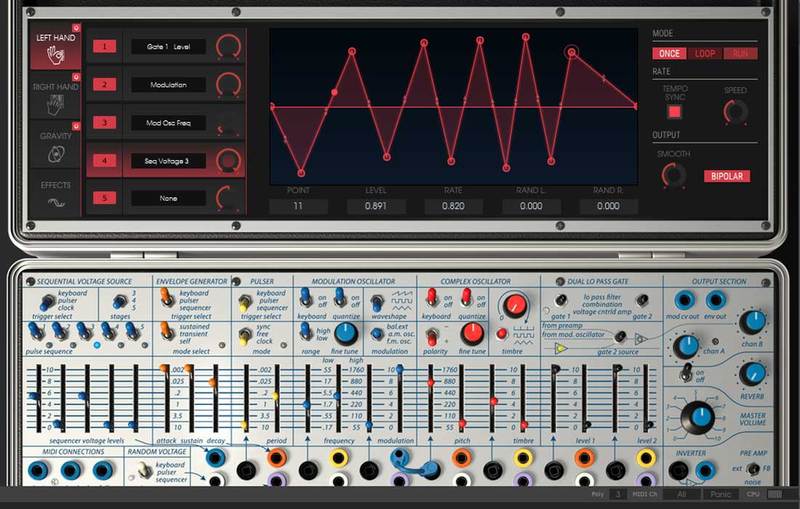

when recording midi in Live ) and an enhanced audio engine. Live 7 sounds better and it’s timing is more precise – there’s a new high quality compressor, a 64 bitmode EQ Eight, improved midi timing ( esp.
PLOGUE BIDULE VS AUDIOMULCH SOFTWARE
Sampler – a software sampler with powerful multisample playback and import, and innovative sound design capabilities. Operator – a software synthesiser designed to match the best of Robert Henke’s hardware synths, and integrated smoothly into Live. Session drums ( boxed version only ) – 28 Gb (!!) of quality drum sounds, multisampled in various ways, thereby offering a studio engineer level of refinement. Tension – physical modelling string synthesiser – which means massive variations and otherworldly string sounds are possible.Įlectric – classic electric pianos with physical modelling synthesis, allowing to dive inside the guts of the instrument.Īnalog – emulates the unique circuitry and irresistible tweakability of vintage analog synthesizers.ĭrum machines – classic drum machines, sampled to reproduce, with additional features not in the originals. For audio-heads, this latest bundle is truly an ’embarrassment of riches’. Naturally, all of these will integrate seamlessly with Ableton’s deservedly championed interface and work processes. Finally, there energyXT, modular sequencer that allows great flexibility in how modules are connected, but does not define modules with mathematical functions, spectral, etc.Choose the ‘ Ableton Suite‘, and alongside Ableton Live 7, you’ll receive a swagger of new audio production tools. For the live plant appears to be as widely used. Last point: If you prefer a less rich tool in low-level functions, take Audiomulch, which is just as well. In short, it's about the ultimate tool for sound design for me. Īnd I have not mentioned the spectral functions, the fun effects, etc. Modules of the community can be directly retrieved on the Internet via an application menu: here is an intelligent. I have very little time right now, and with Bidule, I immediately "inside".įinally, you can develop your own modules with an SDK, I am not yet gone to see. The tool is not cut off from the composition process is almost instrumental performance as it is pleasant to use (not like Max.


And that's exactly what I wanted.Īnd then there's stuff quite lethal: the GUI, nice, spontaneous and clear. With Bidule, you have a tool that is not really oriented synthesis (at least, less powerful that side as SuperCollider), but the ultimate processing chain. with the routing matrix).īefore deciding to dedicate myself to Thing, I just tried SuperCollider, CSound, Chuck, and I heard a lot of Max / MSP and Pure Data (but my tests do not exceed the 10 page manual. Also, gadget comes in a plug-in version, simply import it like a beast vst in your preferred host (for my part, Tracktion: Rack Filter function allows an even greater modularity! EDIT: now I REAPER'm pretty. The problem with such tools is that it is not for the composition (as an activity of sounds available in time), but to search audio (and possibly music, with stochastic generators MIDI & co). Importing external elements VST / VSTi is very well screwed. You can produce and process MIDI and Audio. This stuff is cut for the live!īidule is a modular graph GP.

PLOGUE BIDULE VS AUDIOMULCH PATCH
Otherwise, no crash ever, even with complex and bcp patch of VST / VSTi external. However, again, the graphic representation of the module allows you to see who does what and then to refine the best patch to work. Therefore impossible to say whether more or less greedy when making calculations with the proposed modules. I never did test performance compared with its competitors (Max / MSP, Pure Data, etc.). I even tend to think that it is highly educational to teach computer music. The advantage of modular graphical representation is that we see at once what hardware inputs (audio and MIDI) are used. The setup menus look like what is found in all soft computer music is not rocket science. Nothing to say about the installation, this app is lightweight, easy to deploy.


 0 kommentar(er)
0 kommentar(er)
